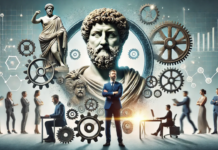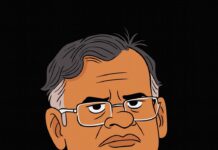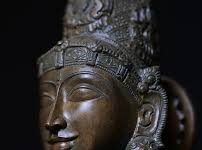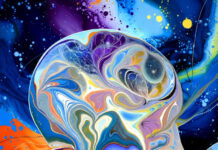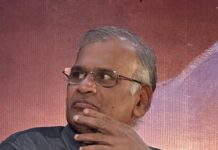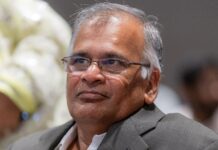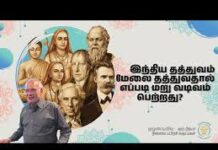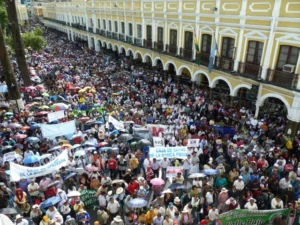 There is a curious thing in history; common political analysts never notice it. Modern religious renaissance moments actually created religious fundamentalism all over the world, and today’s global crisis is this political surge of fundamentalism.
There is a curious thing in history; common political analysts never notice it. Modern religious renaissance moments actually created religious fundamentalism all over the world, and today’s global crisis is this political surge of fundamentalism.
Every religion has its own renaissance movements inside its history of evolution. Usually there are two kinds of renaissance movements: movements of adaptation and movements of purification. They are dialectical forces.
When a religion meets an entirely new culture, when it emerges into a new era, it naturally adapts the new things into it and enlarges it. Without the adaptation and accommodation of new elements, a religion cannot thrive. Every religion in the world has evolved through continuous adaptation.
After a long period of adaptation and amalgamation, a religion may feel that it has significantly deviated from its original doctrine. Then a new movement of reconciliation and purification starts and gains power. It usually seeks to eliminate the meaningless customs and beliefs from that religion while redefining its original doctrines and attempting to return to them.
The recent renaissance moments in the world religions started when three new phenomena met with the established structure of power and thought of religions. The three new phenomena were scientific thought, modern education, and democracy. They brought radical changes in the religions.
Religions became more rational and began to relinquish illogical faiths and customs from them. They began to spread their books directly to the masses, and the common man became the center of all religious activities. But the Renaissance movements, which brought these changes to the religions, gave enormous emphasis to the doctrine of the religion and thus paved the way to fundamentalism.
The Renaissance movements usually preach that the original doctrine of the religion is timeless and beyond doubt. They emphasized that doctrine is the center of the religion, not institutions or individuals. Thus, they created an iron core for all religions.
Renaissance movements created the common man as the new power center of religions; hence, slowly all religions were engrossed with populism. In fact, populism defeated traditionalism in all religions.
Similarly, populism became a systematic part of the newly emerged political system of democracy. Populism quickly established the idea that culture and religion serve as the most effective tools for uniting people and transforming them into a political mass. Thus, populism in politics and populism in religion identified each other, and now this phenomenon is ruling the world.
Actually, it started in Europe. Protestant religion was the first modern populist religion, and naturally it was the first religion used by populist politics. I am always amused to see the word ‘Christian democratic’ and wonder what deep historical meaning it has. Even today, under the liberalism of the Western world lurk the silent ideologies and sentiments of Protestantism.
In India, Catholicism is more liberal in its values and tolerant toward other religions. Catholicism adapted a lot of Indian cultural elements, and I included the Indian way of life in it, whereas Protestantism is very adamant about its ideas and intolerant of other religions. You can see a Catholic woman wearing a “tilak” on her forehead or having a Tamil name. Protestants strictly adhere to the European culture and lifestyle. Their names are also European names; some names are actually European family names.
Generally, analysts can’t understand this phenomenon. Catholicism is essentially traditional, and tradition often adapts to new ideas and influences. Radicalism strictly adheres to the original doctrine, the book, and does not allow for any adaptation. Radicalism views adaptation as an error, a digression, and considers all new ideas to be pollution.
That is the reason for this strange phenomenon: Renaissance movements, which emerged as a result of modern education, scientific approaches, and democracy, became radical movements and threats to democracy.
